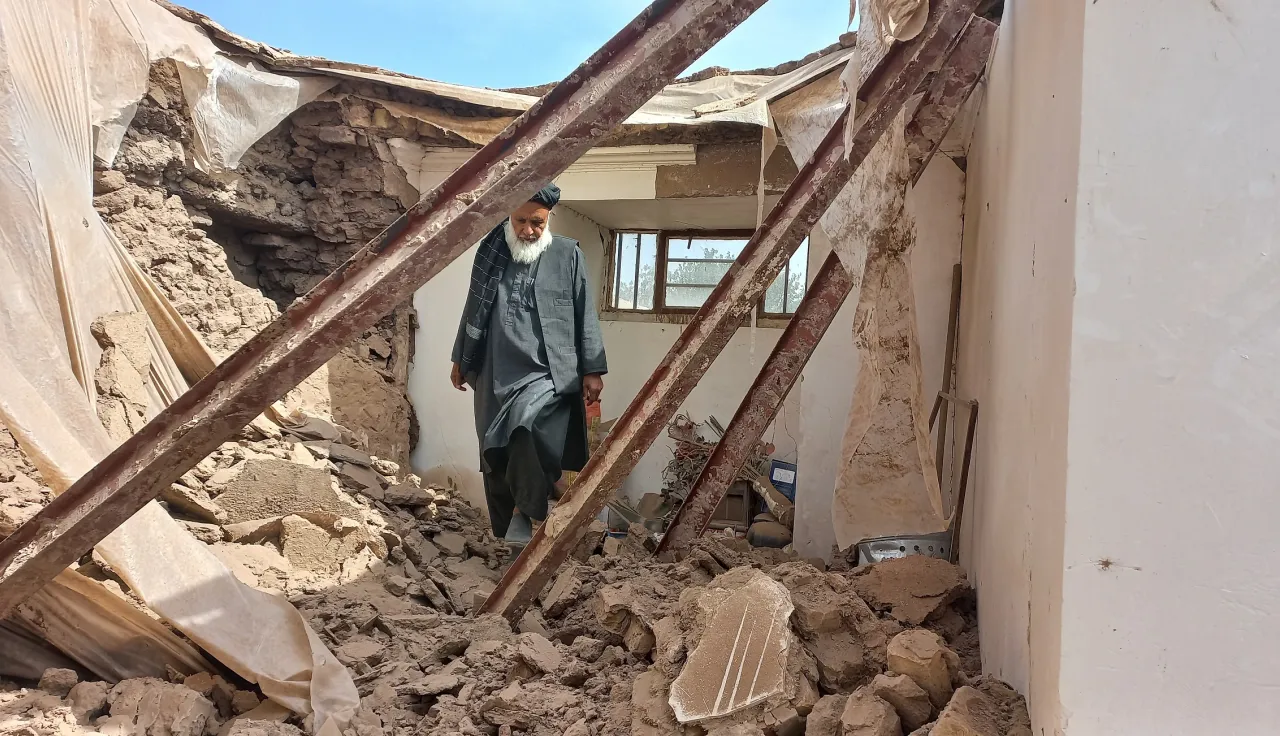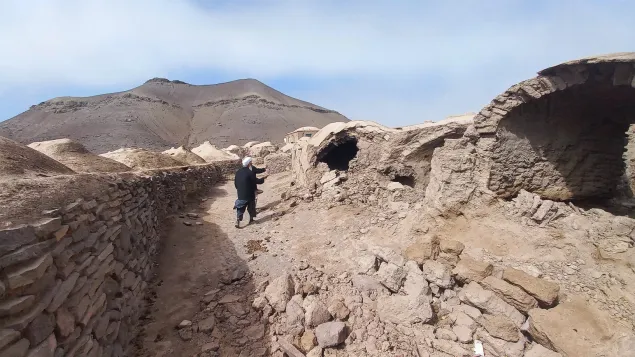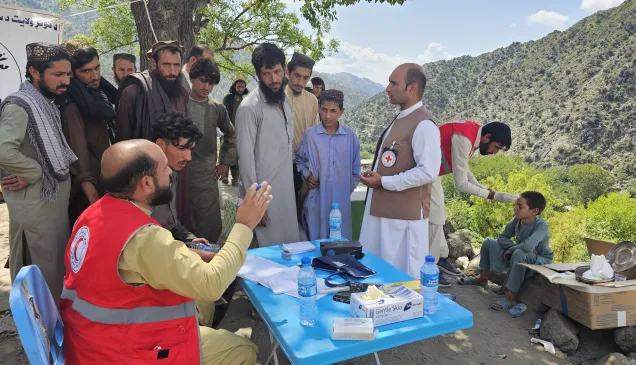Operational Update: Herat Earthquake’s One-month

November 7th marked one month since the first of a series of three earthquakes - with a magnitude of 6.3 - and multiple aftershocks, jolted the western Afghan province of Herat. The earthquakes were devastating, leveling many rural homes, killing around 1,400 people, injuring more than 2,000, and displacing tens of thousands of people from approximately 500 villages mainly from the six districts of Zinda jan, Robat Sangee, Gulran, Kohsan, Injil, Ghoryan and some parts of Herat city, leaving over 110,000 people in need of humanitarian assistance.
More than 3,000 homes were reduced to rubble and hundreds of families are reported to have been displaced to Herat City. Schools and health facilities were also among other infrastructure impacted by the earthquakes.
The continuous aftershocks frightened the people of Herat province and hundreds of families continue to sleep outside, fearing more earthquakes and still experiencing aftershocks creating uncertainty and trauma.
- Since the first day, the International Committee of the Red Cross (ICRC) has worked closely with the Afghan Red Crescent Society (ARCS) in Herat and alongside the local authorities to offer essential services to the injured. ARCS teams continue to deliver emergency assistance and assess the ongoing needs of the affected population.
- As soon as the earthquake struck the area, the ARCS dispatched 16 mobile health teams (MHT) to treat the injured people in the affected districts. The ICRC provided the ARCS with 25 dressing kits and 16 intravenous kits to support the mobile clinics. The medical supplies helped treat over 1000 individuals. The ARCS was also given personal protective equipment (PPE) to ensure volunteers could safely manage the dead in a dignified and safe manner. Furthermore, the ICRC provided financial support to enable ARCS staff and volunteers to respond to the immediate needs of the affected population.
- A total of 5,000 blankets and 2,000 patous (warm cloaks) were provided to the ARCS to be distributed among the population who were facing increasingly cold weather outdoors with the onset of Winter.
- The ICRC donated emergency medical supplies, such as dressing materials and intravenous kits, to the Herat Regional Hospital to treat the injured. Assistance was also provided to the Provincial Public Health Directorate (PPHD) in the form of body bags, personal protective equipment (PPE), and technical support to regional forensic agencies.
- ICRC Herat Physical Rehabilitation Centre received referrals from Herat Regional Hospital and the Emirates Field Hospital (UAE) for treatment follow-up and distribution of mobility equipment. The ICRC HER PRC also delivered 47 pairs of Crutches; 2 units of Walking Frames; 5 Spinal corsets to patients with spinal fractures; and 6 Wheelchairs donated to Norwegian Refugee Council (NRC) field health structures.
- The ICRC monitored the situation of detainees held in Herat provincial prison and discussed with the prison authorities several aspects related to contingency planning and emergency preparedness. The organization has also been in close contact with the Herat prison health clinic to ensure the prison has sufficient medical supplies to attend to the inmates and respond to the emergency. It also delivered vital assistance such as hygiene materials (bleach and handwash buckets) and waste management goods (waste bins, boots, and gloves) to detainees. This approach helped reduce the potential health and hygiene hazards among inmates and personnel.
- The ICRC provided other items such as 7 portable generators, tarpaulins, sets of kitchen utensils as well as water buckets to the families affected in collaboration with the ARCS. In addition, 1 shelter tent and 2 warehouse tents (240 sq m) were also donated to help the ARCS's response.
- The ARCS Restoring Family Links (RFL) team was deployed to the affected area with the support of the ICRC to conduct an RFL rapid needs assessment and provide phone call services to restore contact between separated family members.
- The ICRC supported the Urban Water and Sanitation Services (UWASS) to repair damage to the water networks in Herat City and Qala-e-Now and provided spare parts, fuel, tools, and equipment to ensure the urban water supply continued to function in these locations.
- The ICRC's overall emergency assistance to the ARCS stands at AFN 18.1 million.




